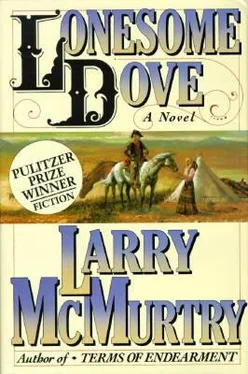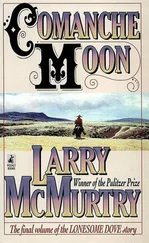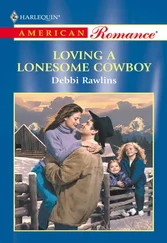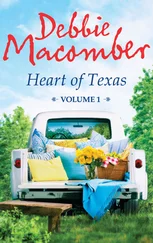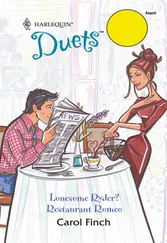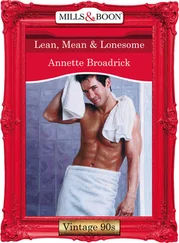"I ain't either," Lorena said.
Clara offered no advice. A few days later, when she was sewing, Lorena came and stood in front of her. She looked no better. "Why did you ask me to stay, when it was you Gus loved?" she asked. "Why didn't you ask him to stay? If you had he'd be alive."
Clara shook her head. "He loved us both," she said, "but Gus would never miss an adventure. Not for you or me or any other woman. No one could have kept him home. He was a rake and a rambler, though you'd have kept him longer than I could have."
Lorena didn't believe it. She remembered how often Gus had talked of Clara. Of course it no longer mattered-nothing like that mattered anymore, and yet she couldn't keep her mind from turning to it.
"It ain't so," she said. She had used her voice so little that it sounded weak.
"It is so," Clara said. "You're more beautiful and less bossy. When I told Gus I was marrying Bob, all those years ago, he looked relieved. He tried to act disappointed, but he was relieved. I've never forgot it. And he had proposed to me thirty times at least. But he saw it would be a struggle if he won me, and he didn't want it."
Clara was silent for a moment, looking into the other woman's eyes.
"Bob was too dumb to realize there'd be a struggle," Clara said. "Half the time he didn't notice it even when he was in it. So mainly I had the struggle with myself.
"It's been lonely," she added.
She thought the conversation a good sign. Maybe Lorie was going to come out of it. But it was the last conversation they had for months. Lorena lived through the winter in silence, only speaking to Betsey, who remained as loyal as ever.
Dish Boggett remained loyal too, although Lorena gave him no encouragement. He spent more and more time playing cards with Sally, whose bright girlish chatter he had come to like. Every day he tried his best with Lorena, but he had begun to feel hopeless. She would not even speak to him, no matter how sweetly he asked. She met everything he said with silence-the same silence she had had in Lonesome Dove, only deeper. He told himself that if the situation didn't improve by the spring he would go to Texas and try to forget her.
Yet when spring came Dish told Clara he would be glad to stay and help her with the colts.
IT CAME TO RANKLE CALL that Gus had left his half of the cattle herd to the woman. The woman was down in Nebraska. She was not there helping. Of course, if she had been there helping, there would have been trouble, but that didn't lessen the aggravation of what Gus had done. He could simply have given her money-he had money. As it was, every time Call sold a bunch of stock to the Army he had to put aside half the money for a woman he had never approved of, who might, for all any of them knew, have already forgotten Gus and married someone else, or even gone back to being a whore.
Still, Call had halved the money. However aggravating it was, Gus had meant it, and he would do it, though when he went back with the body he planned to see if he could at least buy her out. He didn't like the thought of being in partnership with a woman, much less a whore-although he conceded that she might have reformed.
He lived in the tent all winter, keeping the men working but taking little interest in the result. Sometimes he hunted, taking the Hell Bitch and riding off onto the plains. He always killed game but was not much interested in the hunt. He went because he no longer felt comfortable around the men. The Indians had not bothered them, and the men did well enough by themselves. Soupy Jones had assumed the top-hand role, once Dish left, and flourished in it. The other men did well too, although there was some grumbling and many small disputes. Hugh Auld and Po Campo became friends and often tramped off together for a day or two so Hugh could show Po Campo some pond where there were still beaver, or some other interesting place he knew about. Lippy, starved for music, played the accordion and spent nearly the whole winter trying to make a fiddle from a shoebox. The instrument yielded a powerful screeching sound, but none of the cowboys were ready to admit that the sound was music.
At Christmas, hungering for pork, they killed Gus's pigs. The most surprising development was that Jasper Fant learned to cook. He took it up mainly out of boredom, but, tutored by Po Campo, his progress was so rapid that when Po Campo went off with Old Hugh the cuisine didn't suffer.
In the early spring, while the weather was still chancy, fifteen horses disappeared one night. It was only by luck that the theft was discovered, for in such a place at such a time horsethieves were the last thing they were expecting. Call had taken the precaution of going with Old Hugh to two or three of the nearest Indian camps to meet the chiefs and do the usual diplomacy, in the hope of preventing the sort of surprise encounter that had proven deadly for Gus. The visits made him sad, for the Indians were not belligerent and it was apparent that Gus had merely struck the wrong bunch at the wrong time, in the wrong manner. It was a depressing irony, for Gus had always been one to preach diplomacy with the red man and over the years had engaged in many councils that Call himself thought pointless. Gus had talked to many a warrior that Call would merely have shot, and yet had got killed in a place where most of the Indians were happy to talk, particularly to a man who owned an endless supply of beef.
But Call noticed on the visits that, in the main, the Indians had better horses than he did, and he had even arranged a trade with the Blackfeet: fifty beeves for ten horses. The negotiations had required Old Hugh to talk for two days and had left him hoarse.
Thus, when the Spettle boy came in to report the horses gone, Call was surprised. Where would a horsethief come from, and where would one go?
Still, a fact was a fact: the horses were gone. Call took Pea, Newt, Needle Nelson, and Old Hugh, and went in pursuit. He soon ruled out Indians, for the thieves were traveling too slow, and had even stopped to camp not thirty miles from their headquarters, which Indians with stolen horses would never have been foolish enough to do. It was soon plain that they were only chasing two men. They crossed into Canada on the second day and caught the thieves on the third, surprising them at breakfast. They were a shaky old man with a dirty gray beard and a strapping boy about Newt's age. The old man had a single-shot buffalo gun, and the boy a cap-and-ball pistol. The boy was cooking venison and the old man propped against his saddle muttering over a Bible when Call walked in with his pistol drawn. The boy, though big as an ox, began to tremble when he saw the five men with guns.
"I tolt you, Pa," he said. "Now we're caught."
The old man, who had a jug beside his saddle, was clearly drunk, and seemed scarcely conscious of what was occurring.
"Why, I'm a minister of the Lord," he said. "Don't point your dern guns at me, we're just having breakfast. This is my boy, Tom."
Call disarmed the two, which only took a second. The fifteen horses were grazing in plain sight not a hundred yards from the camp.
"We didn't know they were your horses," the boy said, quivering with fright. "We thought they were Indian horses."
"They're all branded," Call said. "You could see that, unless you're blind."
"Not blind and not sinners, either," the old man said, getting to his feet. He was so drunk he couldn't walk straight.
"Well, you're horsethieves, and that's a sin in my book," Call said. "Where do you people come from?"
"From God, man," the old fellow said.
"Where on earth, I meant," Call said, feeling weary. He wondered what had possessed a minister and a boy to run off their horses, each plainly branded. It struck him as a stupid and pointless crime, for they were driving the horses north, where there were no towns and no ranches. It was clear the two were poor, and the old man out of his head. Call could tell the hands were glum at the prospect of hanging such a pair, and he himself didn't relish it, but they were horsethieves and he felt he had no choice. His own distaste'for the prospect caused him to make a mistake-he didn't immediately tie the old man, who seemed so weak he could hardly stand. He was not too weak, though, to snatch up a hatchet and strike a blow at Needle that would have killed him had not Needle jerked back-as it was, the blade of the hatchet tore a bad cut in his arm. Call shot the old man before he could strike again. The boy took off running across the open prairie. He was easily caught, of course, but by the time he was tied and led back the old man was dead. The boy sat down in the thin snow and wept.
Читать дальше
